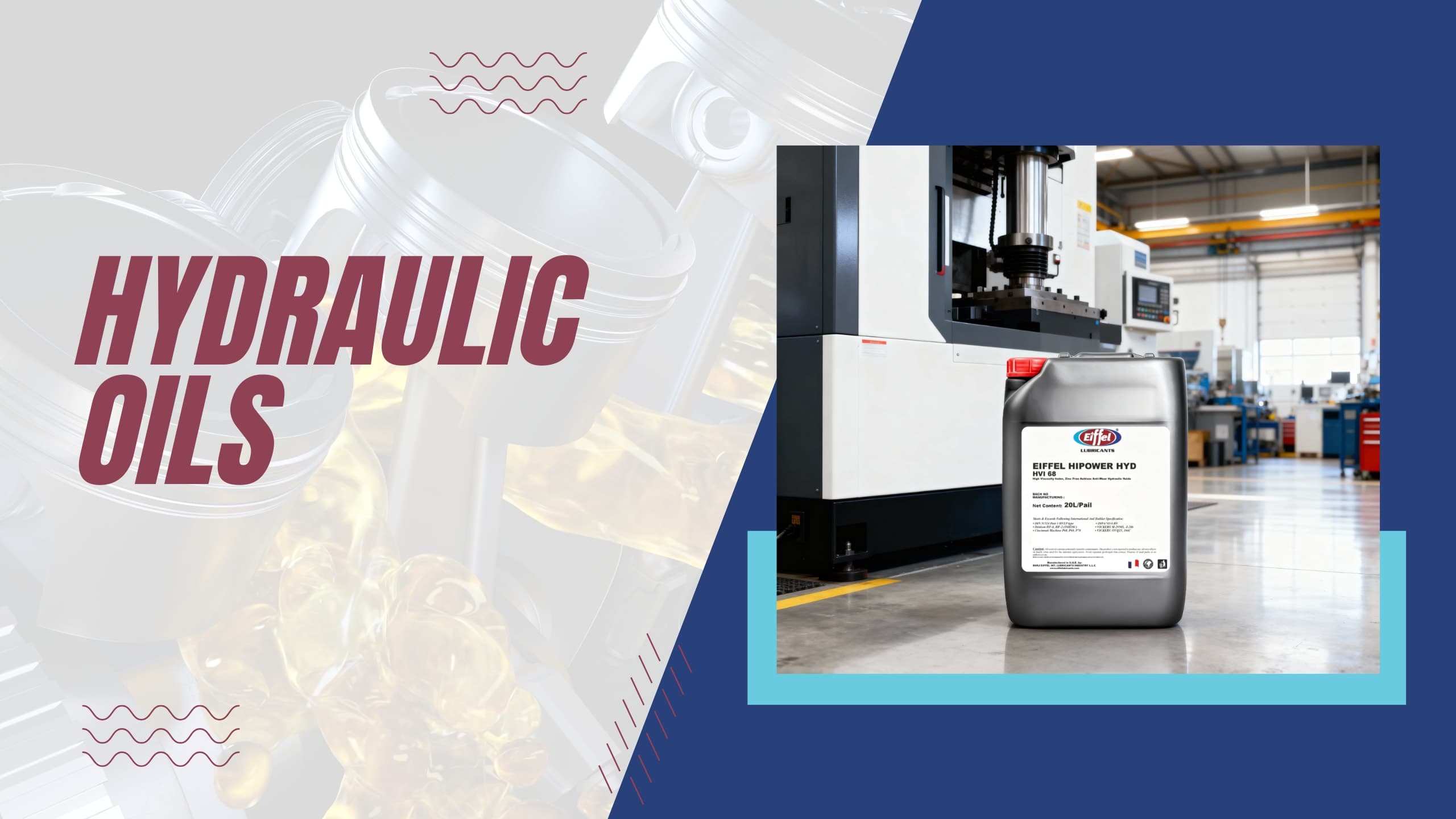
Hydraulic Oils
Power your machinery with our high-performance hydraulic oils, engineered to protect vital components and ensure smooth, efficient operation in the toughest conditions.
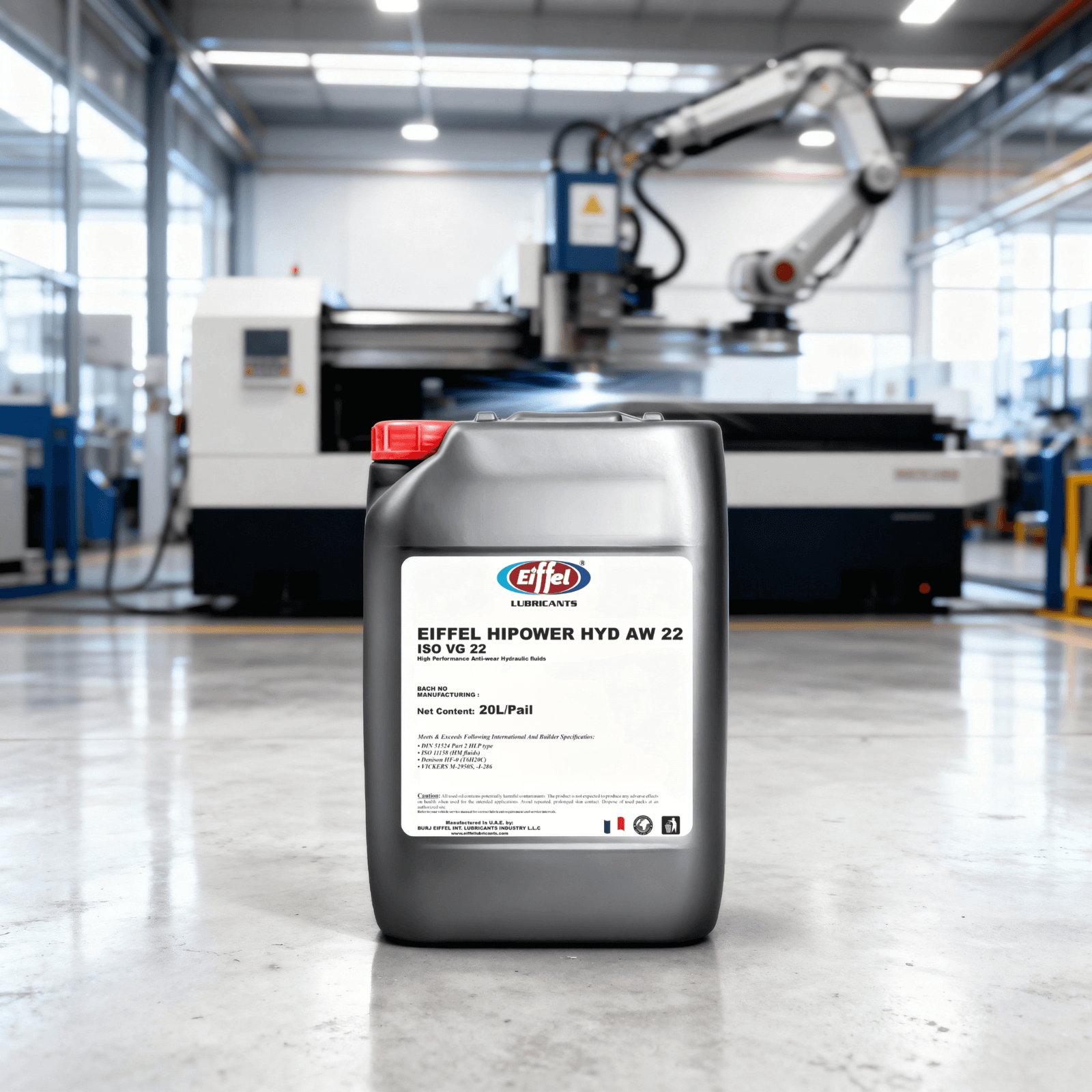
Eiffel HiPower AW 22 ISO 22 Hydraulic Oil 20L
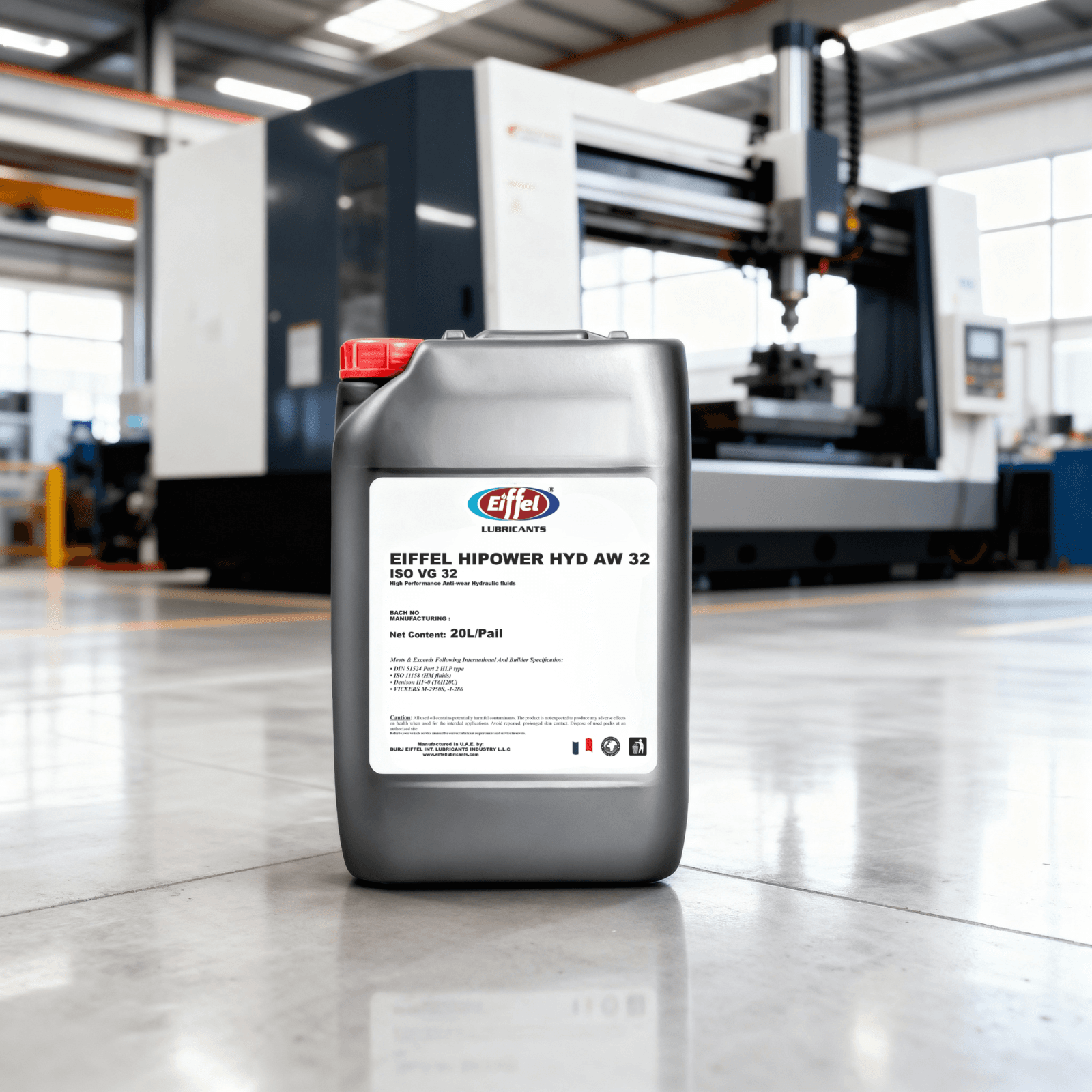
Eiffel HiPower AW 32 ISO 32 Premium Anti-Wear Hydraulic Oil 20L
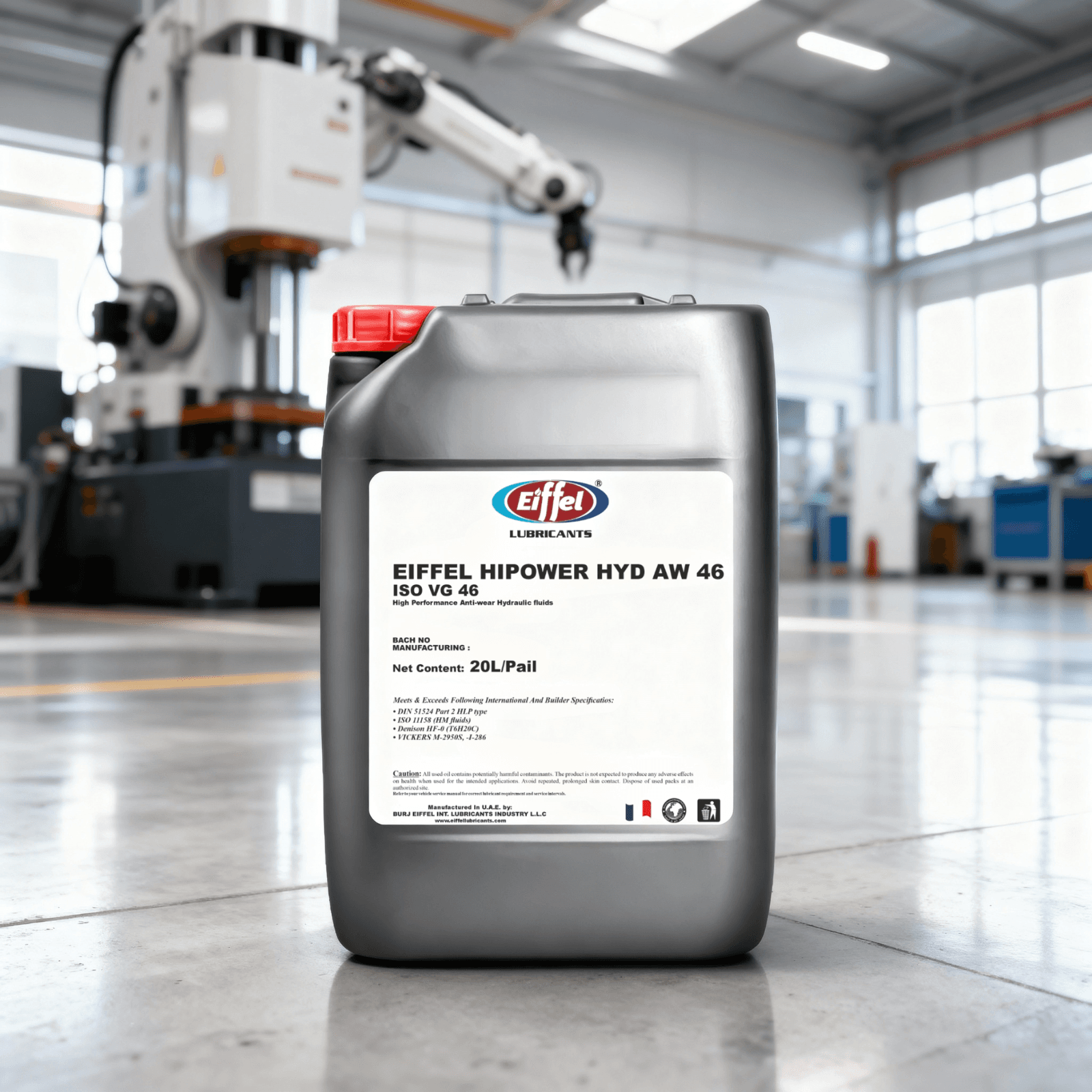
Eiffel HiPower AW 46 ISO 46 Anti-Wear Hydraulic Oil 20L | Group II
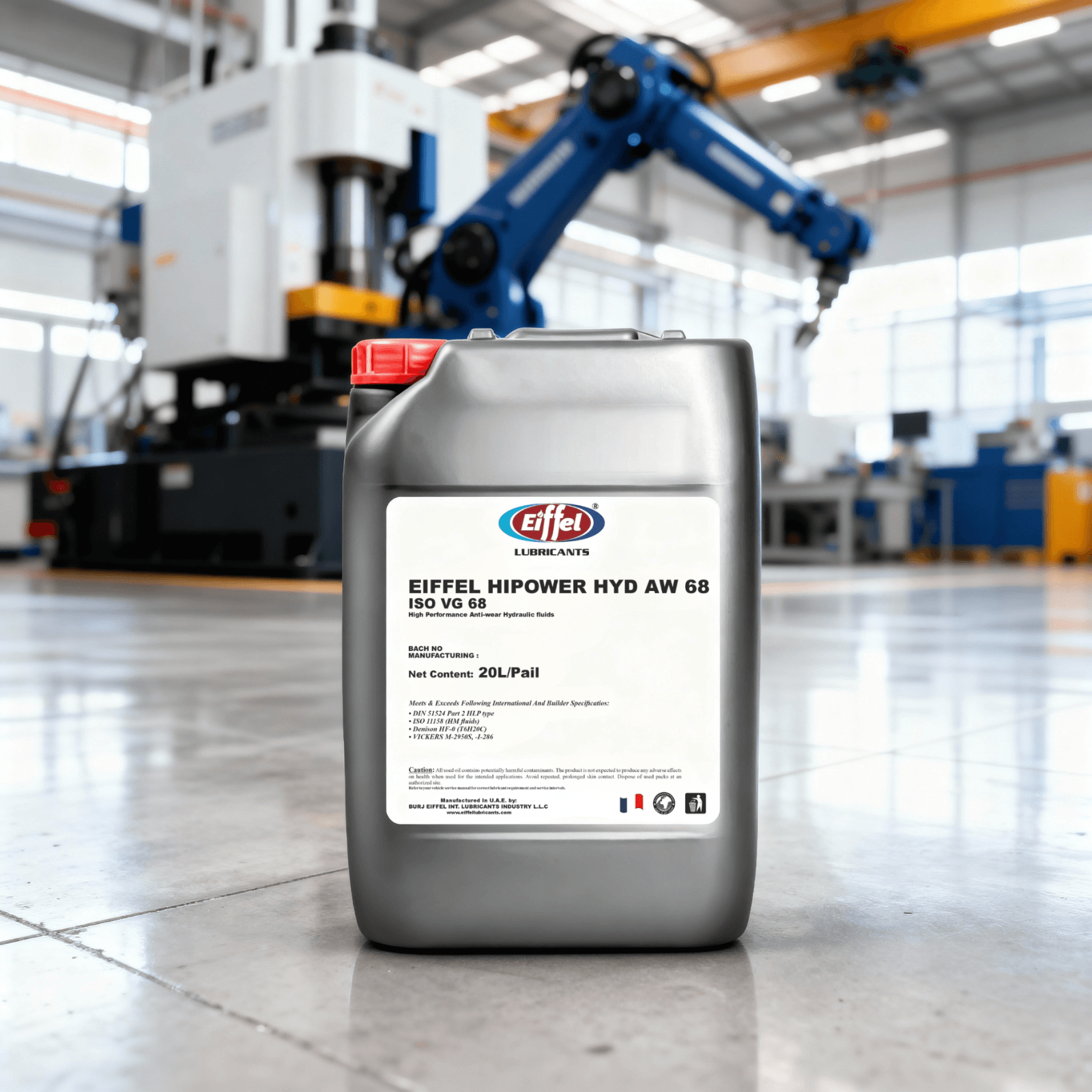
Eiffel HiPower AW 68 Anti-Wear Hydraulic Oil 20L
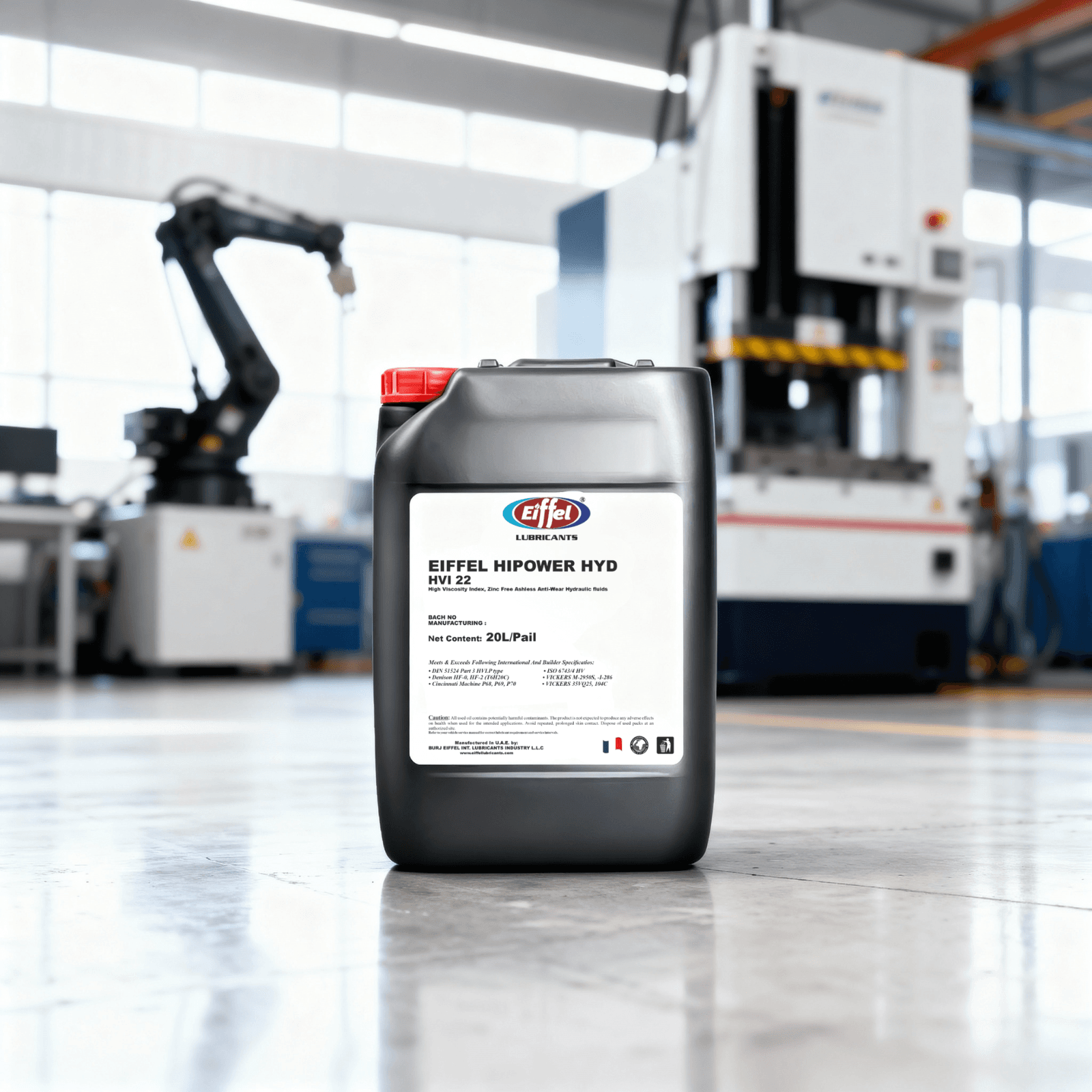
Eiffel HiPower HVI 22 ISO 22 High VI Hydraulic Oil 20L
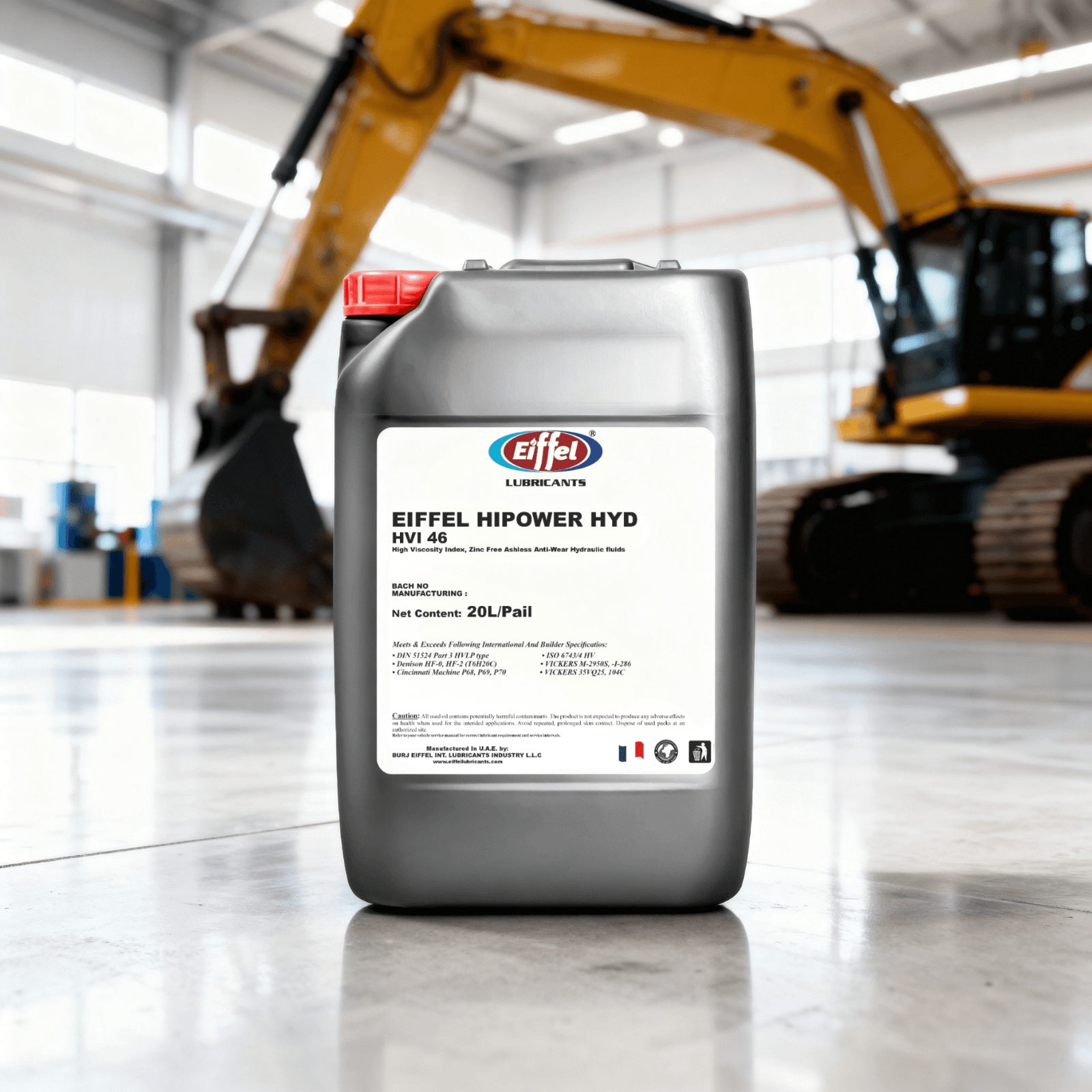
Eiffel HiPower HVI 46 ISO 46 High VI Hydraulic Oil 20L
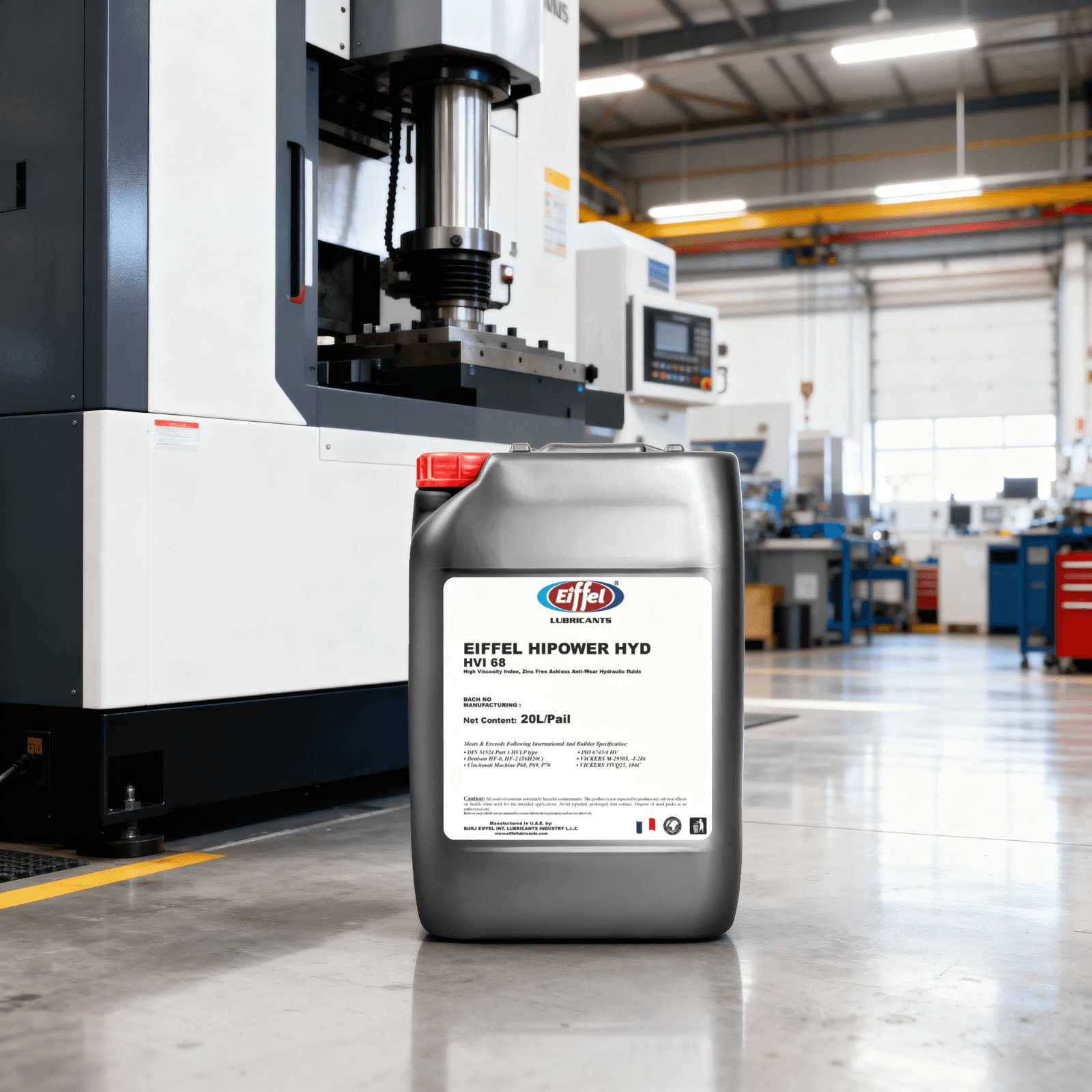
Eiffel HiPower HVI 68 ISO 68 High VI Hydraulic Oil 20L
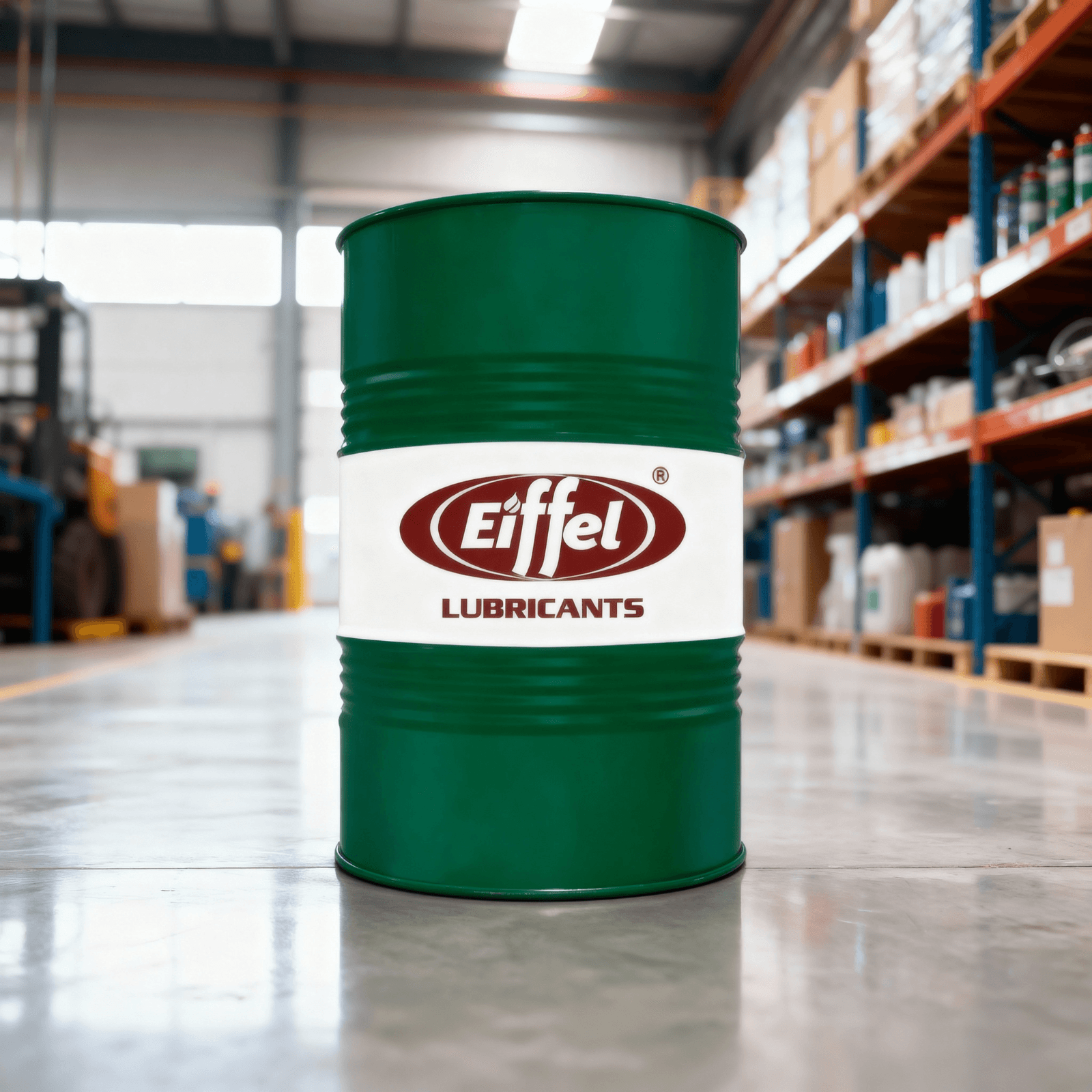
Eiffel HiPower AW 22 Hydraulic Oil | ISO 22 | 205L Drum

Eiffel HiPower HVI 22 Hydraulic Oil (ISO 22) - 205 Litre Drum

Eiffel HiPower HVI 46 Anti-Wear Hydraulic Oil | 205L Drum

Eiffel HiPower HVI 68 High Viscosity Index Hydraulic Oil - 205L Drum

Save up to 50%
Our curated collections are meant to inspire your creativeside and provide you with product options.
Trusted products
Curated selection of trusted products for your vehicles
After sales support
Dedicated after-sales support team, ready to assist you
Delivery across globe
Bringing quality lubricants right to your doorstep
Quality products
Top-notch lubricants crafted with precision and durability
Need help?
FAQs
Customer reviews
Always wanted to try premium synthetic oils but never knew where to start. The product guides on Eiffel Lubricants were super helpful! They gave me the confidence to choose the right oil for my car. Thanks for making it easy!
John Davis
Automotive Enthusiast
A Guide to Hydraulic Oils
Hydraulic systems are the muscles of modern machinery, powering everything from a tractor's front-end loader to the arm of a massive excavator. The fluid inside these systems, hydraulic oil, is what makes this work possible. It's much more than just a lubricant; it's a vital fluid designed to transmit power, protect components, and keep equipment running efficiently.
What Does Hydraulic Oil Do?
A high-quality hydraulic fluid performs three critical jobs at once to keep your equipment operational:
- Transmits Power: Its primary function is to act as a medium for energy transfer. When the pump pressurizes the fluid, it moves through the system to actuate cylinders and motors, creating movement and doing work.
- Lubricates and Protects: Hydraulic systems are full of high-precision components like pumps, valves, and pistons. Hydraulic oil creates a protective film over these parts, helping to prevent the metal-to-metal contact that leads to wear and premature failure.
- Cools the System: As the fluid circulates, it absorbs heat from high-pressure areas and carries it away to the reservoir, which acts as a cooler. This helps to regulate the system's operating temperature and prevent overheating.
Understanding Hydraulic Oil Grades (ISO VG)
You will see hydraulic oils graded by an ""ISO VG"" number, such as ISO VG 32, ISO VG 46, or ISO VG 68. This can seem technical, but it's quite simple.
- VG stands for Viscosity Grade. Viscosity is simply a measure of the fluid's thickness or its resistance to flow.
- The Number (32, 46, 68) indicates the thickness. The higher the number, the thicker the fluid. A lower number like VG 32 is thinner and flows more easily, making it suitable for high-speed systems or cold weather operation. A higher number like VG 68 is thicker, making it ideal for systems that operate under higher loads and temperatures.
Benefits of Using a Premium Hydraulic Oil
Choosing the right hydraulic fluid is an investment in your equipment's health and reliability.
- Designed to Protect Against Wear: Our hydraulic oils are formulated with anti-wear (AW) additives that are designed to provide a critical layer of protection for expensive pumps and valves.
- Helps to Prevent Rust and Corrosion: Rust inhibitors are included to protect the system's internal metal surfaces from moisture that can enter the system.
- Contributes to System Efficiency: A quality oil is designed to resist foaming and shed water quickly, which helps to ensure the hydraulic system operates smoothly and efficiently.
Always consult your equipment's owner's manual for manufacturer-specific recommendations.
